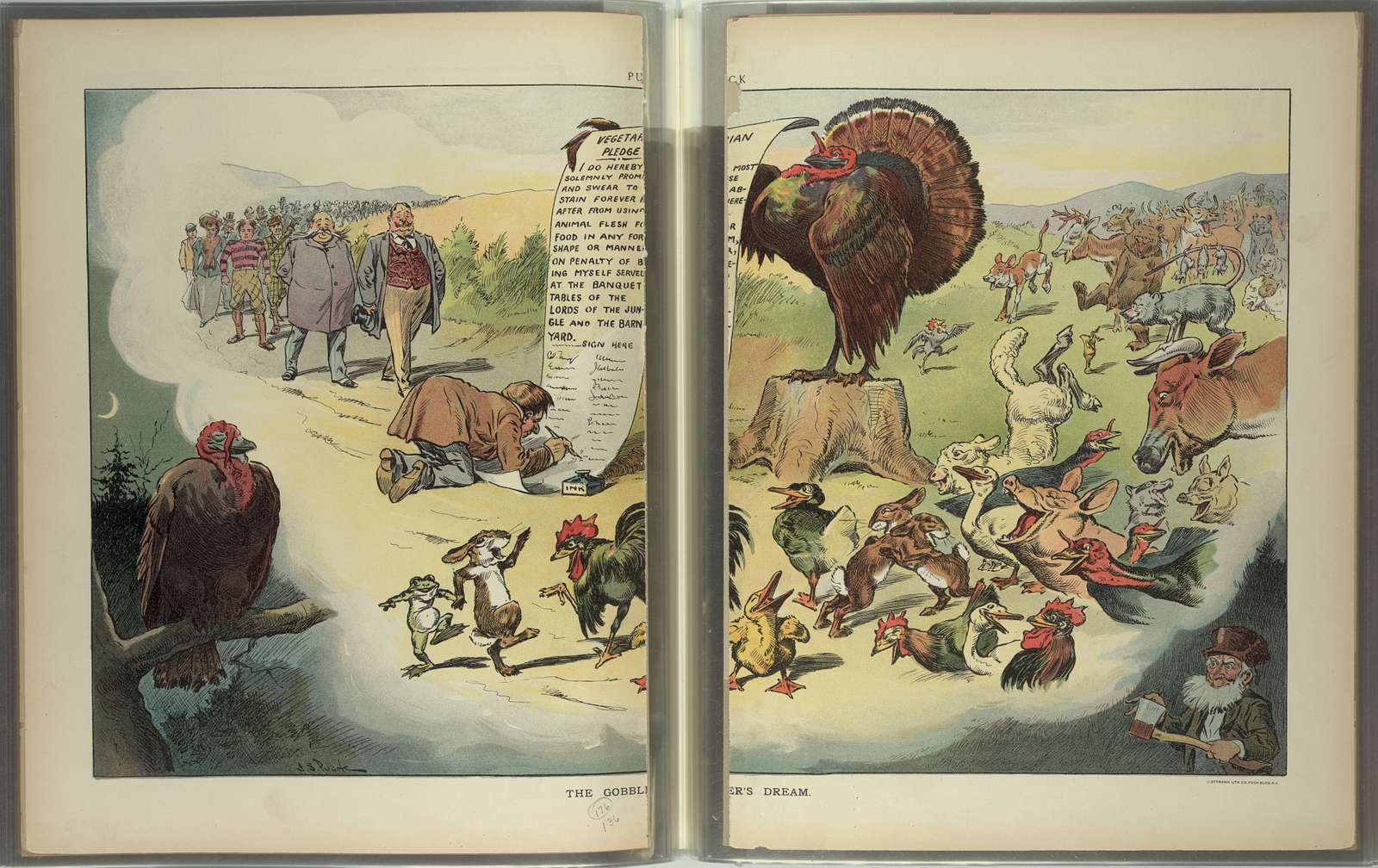difference between eating people and just eating turkeys
In the dialog that follows, the narrative rehearses a number of arguments for flesh-eating and, specifically, justifications for the human killing and eating of turkeys:
1) The little girl's phrase, "just eating turkeys" (38, emphasis added) is spoken from the perspective of anthropocentrism, which articulates an ethics of human superiority that derives from the ideology of human exceptionalism. As the Australian ecofeminist philosopher Val Plumwood has written: “Human exceptionalism remains an important force in our culture, providing ideological background conditions for inferiorising animals and for markets and property in animals, and is often behind resistance to sustainability thinking.” (n.pag.)
2) This "inferiorising" encompasses the little girl's claim that only humans possess a soul and therefore the promise of an afterlife, a claim that is echoed in her subsequent retort that “people have got reason, anyway, and turkeys have only got instinct” (39). The hen turkey answers with the rebuke, “ If we haven't got any souls, we can't live after we've been eaten up, and you can," which reverses the perspective and exposes the anthropocentrism of the little girl's point of view.
As the narration moves out of the dream-vision narrative and into the narratorial frame, the little girl asks her father, "How could turkeys have ghosts if they don't have souls"? (40) This question brings together the narrative's engagement with the issues of literary truthfulness and animal ontology: are animals like turkeys simply biological machines or are they sentient entities? How does storytelling promote one view or the other; or, how does anthropocentric ideology promote a view of animal insentience that permits them to be exploited and consumed?

IMAGE CREDIT:
J. S. Pugh. “The Gobbler's Dream.” Illus. in: Puck, v. 56, no. 1447 (1904 November 23), centerfold. Copyright 1904 by Keppler & Schwarzmann. Public Domain Mark 1.0. Library of Congress, Public Domain Archive. Summary: “Illustration shows a turkey sitting on a tree branch, dreaming of a 'Vegetarian Pledge' and countless people lining up to sign their names, and all the wild and domestic animals laughing; in the lower right corner, the reality is an old man with an axe coming for the turkey.”
